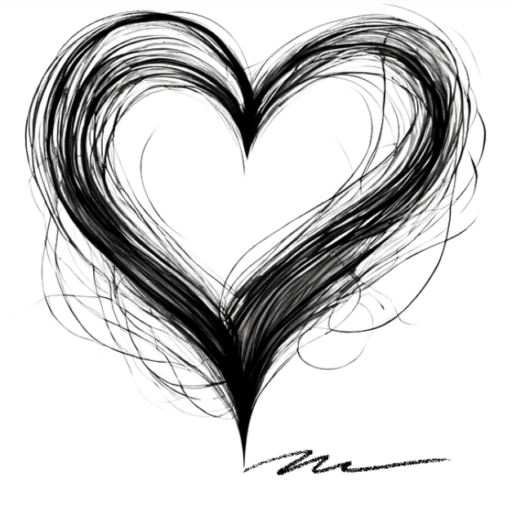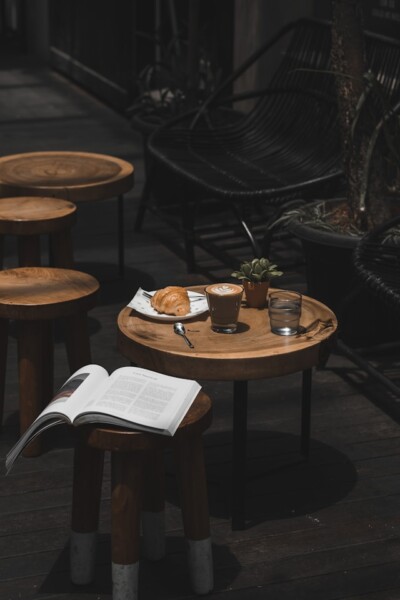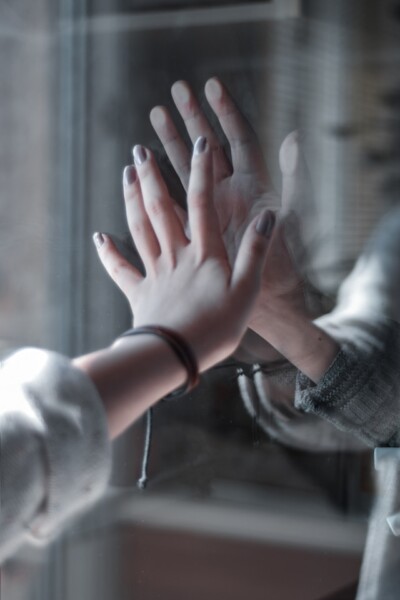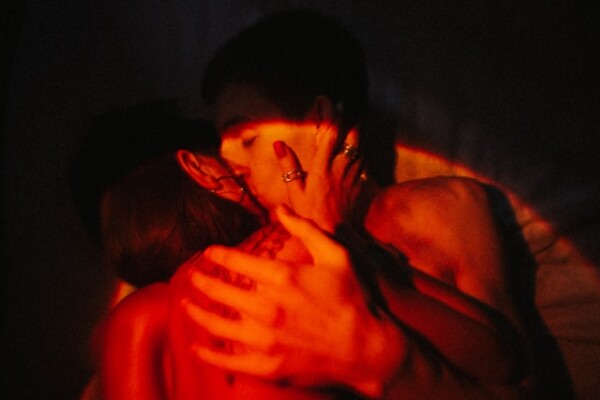The Café Reunion
The café was small, tucked between a hardware store and a secondhand bookshop on a side street off Houston. Its name, Les Fleurs Perdues, was stenciled in fading gilt across the windowpane, the kind of sign you had to squint to read. Inside, the space was dim, all dark wood, weathered tile, and mismatched chairs. The light came from a dozen small lamps that threw yellow pools across tables scarred by the elbows and coffee rings of a thousand conversations.
Susan chose a table near the back, where she could see the entrance. She was never one to give up vantage points. She had arrived fifteen minutes early, as was her habit, ordering a pot of Darjeeling tea and arranging her leather portfolio on the table beside it.
Her eyes flicked from the door to the teacup to her phone and back. She wasn’t sure about this reunion. She could have written him a note, said she liked the play, left it at that. But no. She had reached out. A recklessness. Or maybe a curiosity.
At last, he appeared. Stuart. His hair was grayer now, but thicker than she remembered, swept back in an artful mess. A scarf looped around his neck, even though it was early October and only faintly chilly. He carried himself with the relaxed slouch of someone who lived in his own rhythm, not the city’s.
He saw her instantly, his face lighting up with recognition. No hesitation. He came over, arms out, and hugged her before she had decided if she wanted it.
“Susan,” he said, stepping back to look at her, his voice warm, amused. “You look imposing. London’s been kind to you.”
She smiled tightly. “You’ve changed.”
“I should hope so,” he laughed, sliding into the chair opposite. “Otherwise, I’d still be a thirty-something idiot making all the wrong choices.”
She poured tea for herself, deliberately not asking if he wanted any. He signaled to the waiter and ordered a cappuccino.
For a moment, silence. They sat, the years between them condensing into the space of the table.
“I saw your play,” she said finally, cutting into the quiet.
“I rather thought you had,” Stuart replied. His eyes sparkled. “What did you think?”
Her lips tightened. “I thought it was good. Funny. Sharp. Painful. Recognizable.”
“Ah.” He leaned back, stretching his long arms across the chair. “Recognizable.”
“You wrote me,” she said flatly.
“I wrote us,” he corrected. “A version of us. Memory filtered through art. You can’t take it literally.”
“But I recognized myself.”
“That’s because you’re unforgettable.”
The words were easy, tossed across the table like a ball.
“I don’t know why I came,” she admitted after a long pause. “Seeing you onstage – seeing myself – it confused me. I thought I’d put it all behind me. But suddenly, there it was. All of it.”
“And here you are,” he said gently.
“Yes. Here I am.” She sipped her tea, her hand trembling slightly. “I still don’t understand why you did what you did. With Mandy.”
There it was. The wound. The reason nine years of silence had stood between them.
Stuart didn’t flinch. He stirred his cappuccino with a small spoon, then set it down. “Because I was an idiot,” he said simply.
“That’s not enough,” she snapped. “You broke us. You broke me. And for what? My sister?”
He sighed. “It wasn’t about her. Not really. It was about me. About chasing things. About filling some hole I didn’t even understand.”
Susan’s face tightened. “That doesn’t make sense. We were good together. At least, I thought we were.”
“We were,” he said, his voice steady. “Very good. But I was restless. Always chasing. Manhattan does that to you – it dangles endless possibilities, endless faces. I chased because the chase was thrilling. And then… it wasn’t. It took me far too long to figure that out.”
She shook her head. “That sounds like self-indulgence dressed up as philosophy.”
He chuckled softly. “Maybe. But it’s also the truth.”
Her cheeks flushed. “Do you have any idea what you did to me? I left everything. I had to start over in London. Alone.”
“And you built a life,” Stuart said, almost admiring. “A successful one, from what I can see.”
“That’s not the point!”
“Isn’t it?” He tilted his head. “You made something extraordinary out of the wreckage. Maybe I played a part in that, however ugly.”
She glared. “Don’t you dare take credit for my success.”
He lifted his hands in surrender. “Not credit. Just… connection. You and I were a phase. A messy one. But without it, maybe you’d have written a different story.”
She exhaled sharply, pressing her palms flat against the table as if to steady herself.
The waiter arrived with a tray of pastries. Stuart had apparently ordered them without asking – croissants, pain au chocolat, a slice of cheesecake.
“Still not much for sweets?” he asked, cutting a croissant in half and handing her a piece.
She hesitated, then took it.
They ate quietly for a few moments. The café’s hum returned to fill the silence: the hiss of the espresso machine, the low murmur of two women in the corner, the clink of cutlery.
Susan softened slightly. “Tell me about your husband,” she said at last. The final word carrying an edge.
Stuart’s face lit up. “Ah, the dedication last night. A sentimental gesture. It was our anniversary. Bernie … is wonderful. Patient. Grounded. He balances me. Even tolerates my dramatics – which is saying something. We’ve been together for four years. Got married last May.”
She raised her brows. “So, you’re… settled?”
“As much as I’ll ever be. Being a lothario lost its charm when I hit forty. Fourty one was one hell of a year. Full of regret and self-recrimination. But, by the end, I finally grew into myself. Meeting Bernie helped.”
Her eyes narrowed. “But how? You were a great lover. You pursued women relentlessly. How does that turn into being gay?”
He laughed, not unkindly. “Still am a great lover, if you must know. That hasn’t changed. But sexuality – it’s complicated. For me, women were part of the chase. Men were… home.”
Susan shook her head. “It makes no sense.”
“That’s because you want it to be logical. Life isn’t. At least mine hasn’t been. And people aren’t either. We stumble, pretend, chase illusions. And then sometimes – if we’re lucky – wake up to who we truly are.”
Susan pushed her teacup aside. “So, was anything between us real?”
“Yes,” he said firmly. “Completely. It was real, Susan. Just not permanent. That frightened me. I didn’t understand it when we were together. I have come to with time. I wasn’t capable of it then. Now is different. All of it is different.”
She looked away, her throat tight. “And Mandy?”
“A mistake. A terrible one. Not just because of what it did to her, but because it hurt you so deeply. I’ve never forgiven myself for that.”
Her voice softened despite herself. “She never forgave me, you know. For hating her after. Even today, we can’t get past what happened – what you made happen. We don’t talk. We used to almost every day. I blame her. She blames me for not understanding – for not giving her a second chance. ”
“What happened wasn’t your fault.”
“Maybe not. But it broke us apart as sisters.”
Stuart’s expression darkened. “I’m sorry. Truly. If I could undo that, I would.”
For a moment, Susan’s rigid posture loosened.
They drifted into easier talk: about London, about Nigel, Susan’s adopted son. She showed him a photo – a boy with tousled hair, grinning with a missing tooth. Stuart’s face warmed with genuine delight.
“He’s beautiful,” Stuart said. “You’ll be an incredible mother. You already are, I can tell.”
Stuart spoke of Bernie, of their apartment in Chelsea, of opening nights and the thrill of seeing audiences laugh or cry at his words. He described writing Who Was That Guy in a frenzy of memory and honesty, never expecting it to hit as hard as it did.
“It felt like therapy, only with better reviews,” he joked.
Susan smiled despite herself.
But the calm didn’t last.
Susan leaned in. “You make it all sound so easy. Like your life just… unfolded. Phases, you called them. As if betrayal, heartbreak, confusion – none of it matters, so long as you get to your truth in the end.”
Stuart considered. “I don’t dismiss the pain. Yours or mine. But I don’t dwell in it either. Life moves. We either move with it or get stuck.”
“That’s infuriating,” she said through clenched teeth. “I built my life. I chose every step. You… stumbled from phase to phase, and now you sit there smug because it worked out.”
“Not smug,” he corrected gently. “Grateful.”
Her eyes flashed. “Grateful at my expense.”
“No,” he said softly. “Grateful that somehow, despite the damage, we both ended up where we were meant to be.”
Her breath caught. She wanted to scream. She wanted to believe him. Both at once.
They let the silence sit again, heavy but not unbearable. The café’s light had dimmed as the afternoon waned, and the yellow lamps glowed more warmly against the dark. A faint drizzle streaked the windowpanes.
At last, Susan stood. “I should go. I have meetings tomorrow.”
Stuart rose too. For a moment, they faced each other, the years between them pressing close.
“I’m glad you came,” he said.
“I don’t know if I am,” she admitted.
He smiled sadly. “That’s fair.”
She hesitated, then extended her hand. He took it, holding it a beat longer than necessary.
And then she was gone, her heels clicking against the tile, her figure disappearing into the damp Manhattan evening.
Stuart lingered at the table, sipping the last of his cappuccino, bemused as ever. He knew she would turn their meeting over in her mind, dissecting it for meaning. He, on the other hand, felt strangely light. Two lives had crossed again, briefly, and then parted. That was enough.
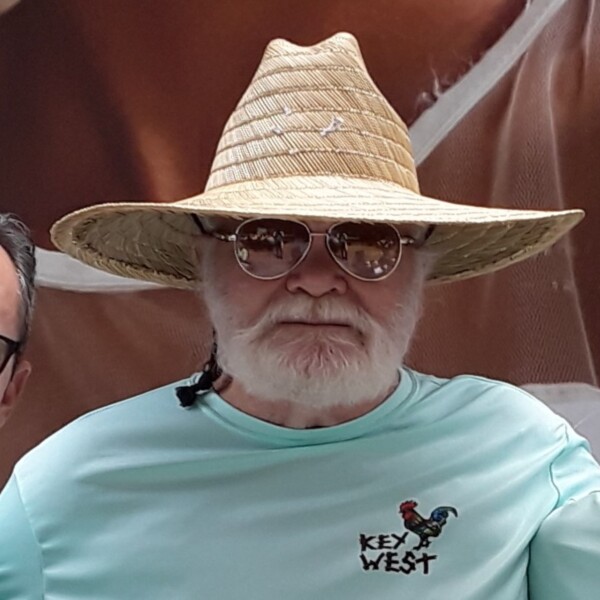
Earl Smith is a published author who writes short stories, poetry, and essays focused on the human experience. Most are drawn from personal experience. He also write action-adventure thrillers – often with a paranormal twist. (https://www.smithtales.com/)
